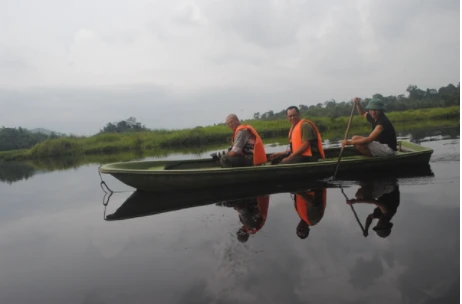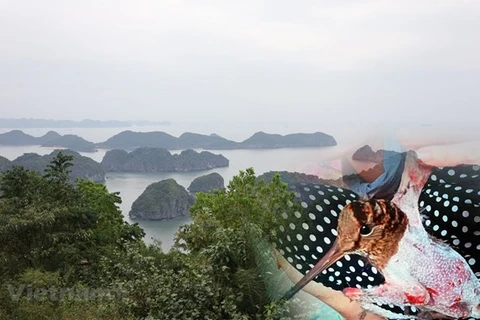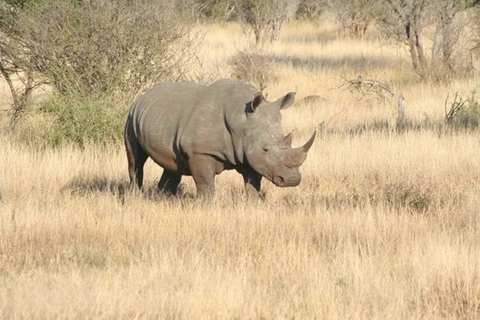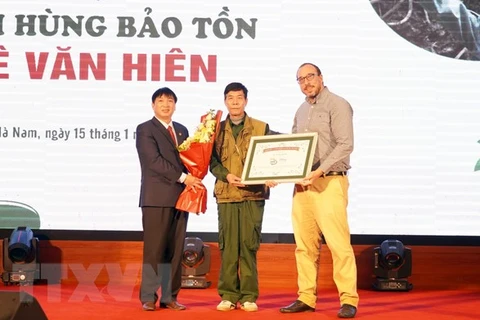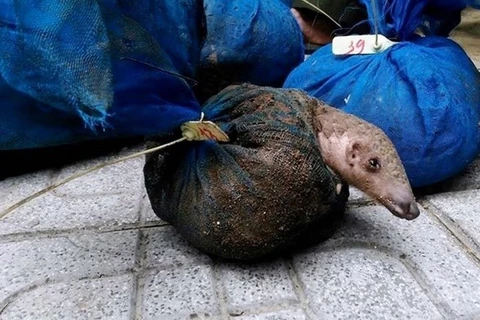Hanoi (VNA) – The detection and settlement of wildlife crimes in Vietnam have recoded strides over the last five years, according to Deputy Director of the Education for Nature Vietnam (ENV) Bui Thi Ha.
Talking to the Vietnam News Agency ahead of the World Wildlife Day (March 3), Ha highly valued many organisations’ assistance for authorities in monitoring violations.
However, she noted, there remain a number of challenges to the fight against wildlife crimes.
The discovery of infringements and seizure of prohibited goods are initial successes, but they are only useful when helping with the investigation into trafficking rings and ringleaders, she said.
Ha pointed out that although the legal system on the conservation and sustainable development of wild animals has been gradually completed, wildlife-related violations remain complex in some localities, posing higher extinction risks to many wild species in the nature and negatively affecting ecological balance, human health, and Vietnam’s prestige in the world.
In 2020, ENV recorded 2,907 wildlife-related violation cases, almost doubling the figure in 2019. Among them, there were 1,956 advertising cases, 863 caging cases, and 98 transportation ones.
Monkeys, bears, tigers, elephants, and pangolins are among the species involved in violations, ENV found.
Between 2015 and 2020, the number of uncovered and handled criminal cases related to wildlife rose 44 percent, showing an improvement in the settlement of wildlife crimes since the 2015 Penal Code, revised and supplemented in 2017, took effect on January 1, 2018, Ha said.
She added that since 2005, ENV has operated a free hotline for wild animal protection to receive people’s information about illegal wildlife trafficking, hunting, transport, and storage.
In the time ahead, the organisation will maintain this hotline and boost communications to raise public awareness of the issue and thus, reduce demand for wildlife products. It will also continue working with relevant agencies to help with the perfection of policies and laws related to wildlife, Ha added./.
Talking to the Vietnam News Agency ahead of the World Wildlife Day (March 3), Ha highly valued many organisations’ assistance for authorities in monitoring violations.
However, she noted, there remain a number of challenges to the fight against wildlife crimes.
The discovery of infringements and seizure of prohibited goods are initial successes, but they are only useful when helping with the investigation into trafficking rings and ringleaders, she said.
Ha pointed out that although the legal system on the conservation and sustainable development of wild animals has been gradually completed, wildlife-related violations remain complex in some localities, posing higher extinction risks to many wild species in the nature and negatively affecting ecological balance, human health, and Vietnam’s prestige in the world.
In 2020, ENV recorded 2,907 wildlife-related violation cases, almost doubling the figure in 2019. Among them, there were 1,956 advertising cases, 863 caging cases, and 98 transportation ones.
Monkeys, bears, tigers, elephants, and pangolins are among the species involved in violations, ENV found.
Between 2015 and 2020, the number of uncovered and handled criminal cases related to wildlife rose 44 percent, showing an improvement in the settlement of wildlife crimes since the 2015 Penal Code, revised and supplemented in 2017, took effect on January 1, 2018, Ha said.
She added that since 2005, ENV has operated a free hotline for wild animal protection to receive people’s information about illegal wildlife trafficking, hunting, transport, and storage.
In the time ahead, the organisation will maintain this hotline and boost communications to raise public awareness of the issue and thus, reduce demand for wildlife products. It will also continue working with relevant agencies to help with the perfection of policies and laws related to wildlife, Ha added./.
VNA

